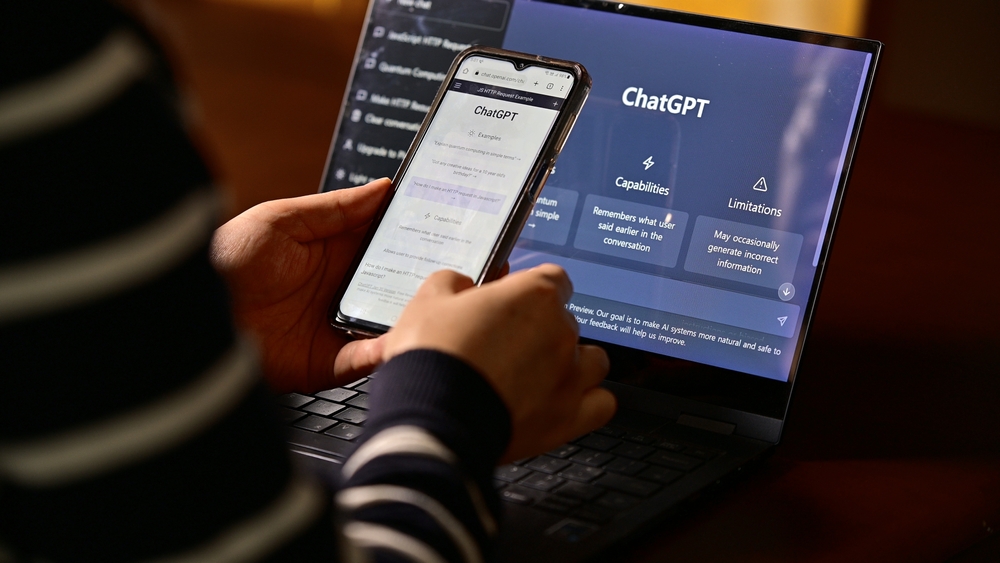Artificial intelligence is helping some seniors thrive while leaving others feeling uneasy.

Technology has always had a way of dividing opinions, and ChatGPT is no exception. While some seniors are diving into the world of AI with curiosity and excitement, others are keeping their distance, unsure of what to make of this digital conversationalist. The divide often comes down to comfort with technology, past experiences, and individual openness to change.
Understanding why these reactions differ so widely can shed light on how to bridge the gap and help more seniors benefit from this innovative tool.
1. Some seniors see ChatGPT as a helpful everyday tool.

For many tech-savvy seniors, ChatGPT is like having a friendly assistant at their fingertips. Need a recipe idea? ChatGPT can help. Want to write a thoughtful email or get book recommendations? Just ask. Those who are comfortable using smartphones, tablets, or computers often find the AI assistant to be a practical resource that makes daily tasks easier.
This group tends to approach ChatGPT with curiosity, enjoying the chance to explore new technology. Many see it as a way to stay engaged, learn new things, and even keep their minds sharp. By asking ChatGPT questions or engaging in conversations, they’re maintaining a connection to the broader world, which can be especially valuable for seniors who live alone or have limited mobility.
2. Others worry that ChatGPT could replace human interaction.

While some seniors are embracing ChatGPT, others are wary that too much technology could reduce real human connection. The idea of talking to a computer instead of having a conversation with a friend or family member feels unsettling. They worry that relying on AI could lead to isolation or a loss of meaningful social interactions.
For this group, the appeal of technology is often overshadowed by a preference for face-to-face communication. They value the warmth, empathy, and unpredictability of human interactions—something that no AI, no matter how advanced, can fully replicate. It’s not so much a rejection of technology itself but a concern about what could be lost if screens replace smiles and voices.
3. Curiosity and a love of learning draw some seniors to ChatGPT.

For lifelong learners, ChatGPT is like having a knowledgeable companion always ready to chat. Many seniors who have embraced technology over the years see ChatGPT as just another tool to expand their horizons. They enjoy asking questions, exploring new topics, and even using the AI to practice hobbies like creative writing or language learning.
This group often appreciates how easy it is to use ChatGPT. There’s no complicated setup, no apps to download—just type a question and see what comes back. The simplicity appeals to those who want to learn without the hassle of navigating new software or signing up for online courses. For them, ChatGPT is less about technology and more about the joy of discovery.
4. A fear of technology makes others shy away.

Not everyone feels comfortable navigating the digital world. Many seniors who struggle with technology feel intimidated by the idea of interacting with AI. It’s not just ChatGPT—they often avoid using smartphones, tablets, or any digital tools that seem complex or confusing. This reluctance can lead to a natural hesitancy to engage with an AI assistant.
This group may also harbor concerns about making mistakes or breaking something. They might worry about typing the wrong thing, misunderstanding how ChatGPT works, or accidentally sharing personal information. Without clear guidance or patient instruction, using ChatGPT can feel more like a risk than a resource.
5. Some appreciate the companionship ChatGPT offers.

For seniors who live alone, ChatGPT can provide a form of companionship that helps fill the quiet moments. Engaging in casual conversation, sharing interests, or even having a bit of light-hearted banter with the AI can make a home feel a little less empty. While it’s not the same as talking to a person, the sense of interaction can still be comforting.
This is particularly helpful for those who may not have regular visitors or who find it difficult to leave their homes. ChatGPT can be a friendly voice (well, text) that responds quickly, offering a small but meaningful boost to daily life. While it won’t replace human connection, it can supplement it, helping to ease feelings of loneliness.
6. Concerns about privacy and data security hold some back.

Privacy is a big deal, and for many seniors, the idea of sharing personal information with an AI feels risky. Questions about who can see their conversations, how data is stored, and what happens with the information they share can create a barrier to using ChatGPT. Some seniors may have heard stories about data breaches or scams, making them extra cautious.
This hesitation isn’t unfounded. The digital world can be a confusing place, and without clear explanations and reassurances, using an AI tool might seem more dangerous than helpful. Seniors who are more comfortable with traditional methods—like asking a trusted friend for advice instead of an AI—may stick to what feels safe and familiar.
7. Tech support and patience make all the difference.

One of the biggest factors in whether seniors embrace ChatGPT is the support they receive. Those who have patient friends, family, or community resources to help them understand the technology are more likely to give it a try. When someone is there to guide them through the first few interactions, answer questions, and address concerns, the AI tool becomes less intimidating.
Conversely, seniors without a support system may struggle to even get started. A lack of guidance can turn what should be a helpful experience into a frustrating one. By offering accessible tutorials, easy-to-follow instructions, and ongoing support, more seniors could find ChatGPT to be a valuable and enjoyable addition to their daily lives.
8. The generational gap in technology use plays a big role.

For many seniors, technology wasn’t a part of their everyday lives until much later in adulthood. While younger generations grew up with smartphones and computers, many older adults had to learn these skills later in life, often in a work setting or through necessity. This late start can influence how comfortable they feel experimenting with new tools like ChatGPT.
The learning curve can feel steep, and without the intuitive familiarity that younger generations have, engaging with AI may feel daunting. This generational gap isn’t about ability—it’s about exposure. With the right approach, including tailored resources and gentle encouragement, seniors can bridge this gap and explore the benefits of ChatGPT without the anxiety of navigating unknown territory.
